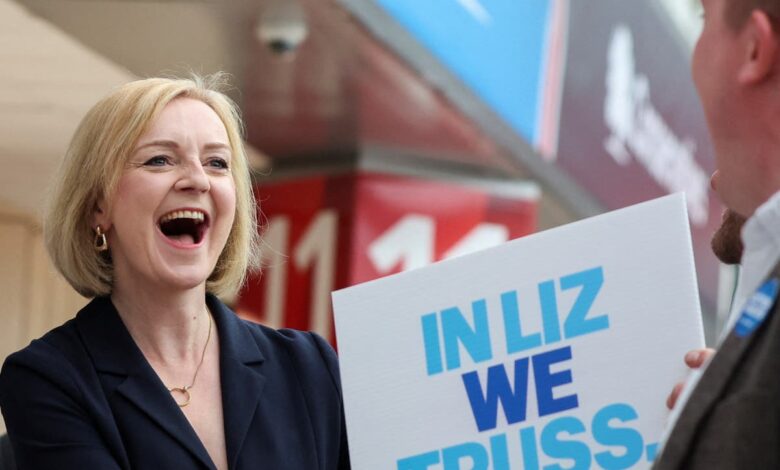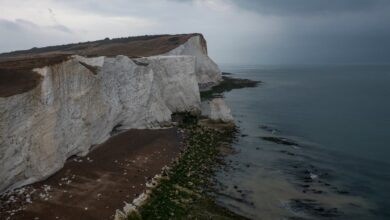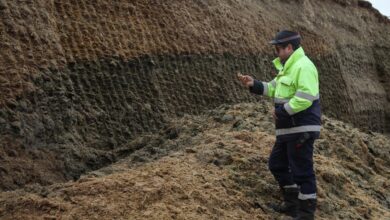Why Liz Truss’s big fracking plan will not cut energy bills

“In Liz we Truss”, read the supportive placards during the new prime minister’s leadership campaign – a campaign in which she promised to stand by the Conservatives Party’s 2019 election manifesto.
“I want to deliver the promise of the 2019 manifesto,” she said at recent hustings.
But just two days into her premiership, the trust alluded to by her supporters’ slogans is already being put to the test as she has discarded a key pledge the 2019 manifesto set out – to keep the ban on fracking.
“We will not support fracking unless the science shows categorically that it can be done safely,” the document said.
It is unclear why Ms Truss has moved so rapidly to embrace fracking, but the controversy will immediately achieve two things. Firstly it will anger her opponents – along with almost anyone who cares about the natural world or understands the energy crisis.
Secondly, it will further bolster her support among the right wing of the party, who cannot get enough of the fossil fuel economy and has been howling for fracking rigs to be allowed access to the shale deposits in the north of England.
In the Conservative Party, a major rift between MPs exists between those who support climate action and those who don’t.
These warring factions include the Conservative Environment Network (CEN), which has the support of 133 Tory MPs, accounting for half of backbench MPs, and supports government action to reduce emissions, invest in the green economy and reach the 2050 net zero target.
Opposing this group is a smaller, but highly influential group of MPs who are part of the Net Zero Scrutiny Group, which has a number of links to the UK’s most prominent climate science denial organisation – the Global Warming Policy Foundation – founded by former Conservative chancellor Nigel Lawson.
There is also an element of crossover with the powerful Eurosceptic group the ERG, recognised as “the most influential” parliamentary group “in recent history”. On Twitter, Green Party peer Jenny Jones suggested Ms Truss’s support for fracking was a “dog whistle to the ERG”.
Previous ERG chairmen include Steve Baker, co-founder of the Net Zero Scrutiny Group, and Jacob Rees-Mogg, who has a record of climate denialism and has this week been appointed energy secretary.
Ms Truss’s decision to overturn the moratorium on fracking came alongside the announcement of plans for the government to launch a new oil and gas licensing round, which could happen as early as next week, and is expected to lead to over 100 new licences.
At the same time as Ms Truss was in parliament announcing her intention for a huge fossil fuel recovery programme, it was also revealed that the largest single donor to her successful leadership campaign came from Fitriani Hay, the wife of former BP executive, James Hay, who gave her £100,000.
Tory MPs cling to fracking and drilling for gas and oil in the North Sea as a form of foundational myth – an emotional bond with hydrocarbons which harks back to Victorian entrepreneurial, imperialist values.
And it remains convenient, as for now, they’re still currently in receipt of huge amounts of money – even as the fossil fuel industry falls out of favour with the public and investors walk away.
Activists from Extinction Rebellion stage an anti-fracking protest outside the Department for Business, Energy and Industrial Strategy in Westminster, London
But cold, hard empirical evidence makes a mockery of further investment by states in these antiquated, steampunk technologies
But while Ms Truss’s efforts to appeal to the powerful, wealthy right-wing of the party may shore up her position temporarily, the maths does not add up.
Solar and wind are the cheapest forms of power possible. UK gas-powered electricity is now costing the government an incredible nine times more to buy than electricity from renewables.
Meanwhile, there is no debate that UK fracking and new gas can reduce sky-high bills for consumers. As Ms Truss’s new chancellor Kwasi Kwarteng previously noted while business and energy secretary: “Even if we lifted the fracking moratorium tomorrow, it would take up to a decade to extract sufficient volumes – and it would come at a high cost for communities and our precious countryside.
A number of sites across the UK have licences for exploration





